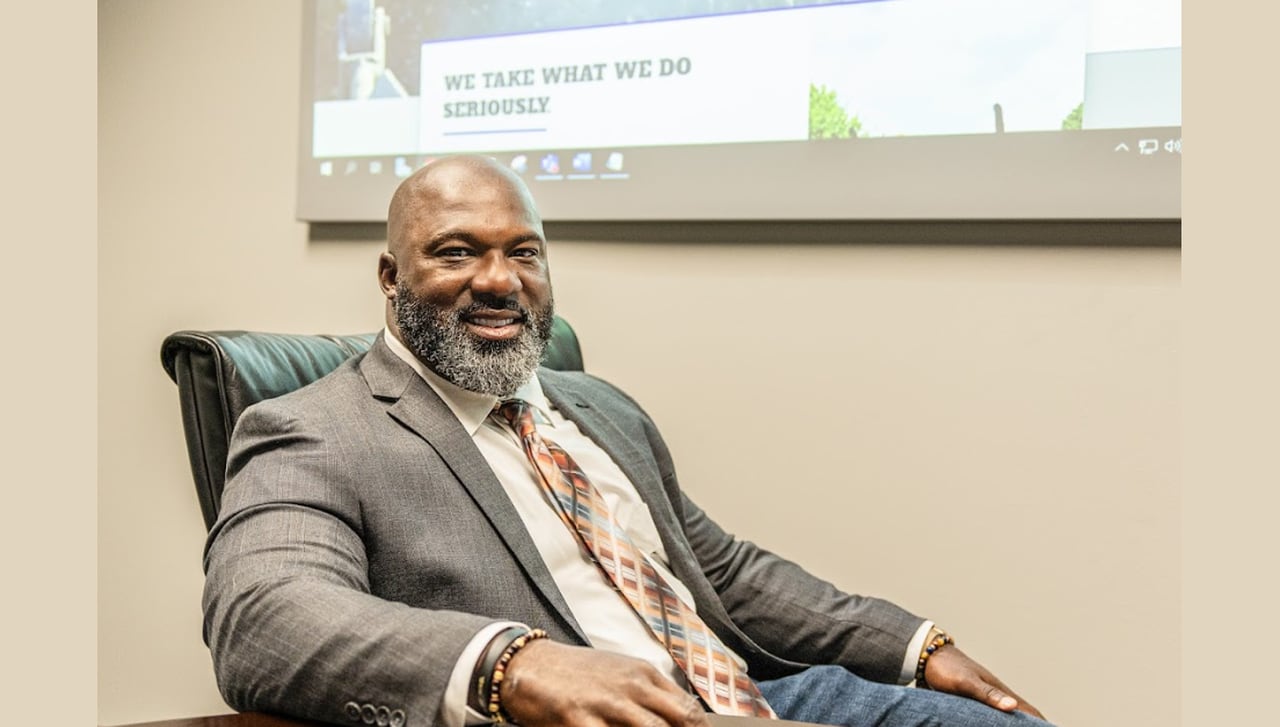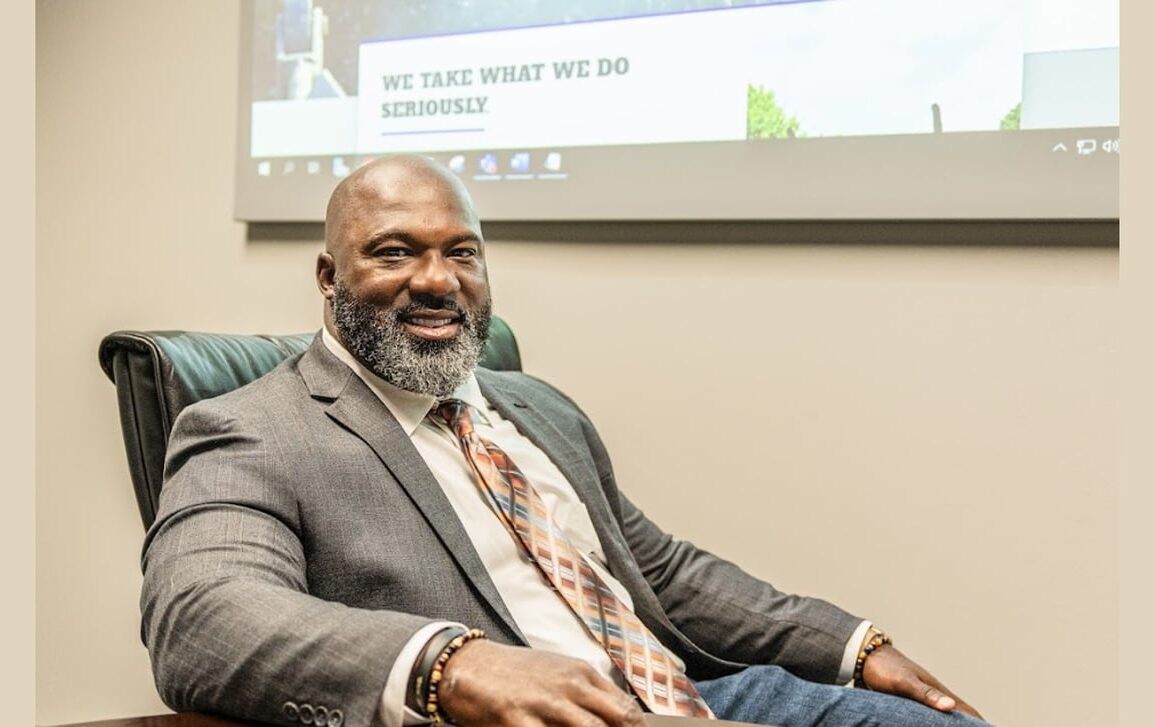
This story is republished with permission from The Birmingham Times
Joseph Winters describes himself as a “lifelong learner and a student at heart,” and the lessons he’s learned have included a 62-year prison sentence—as well as the recent purchase of the Birmingham, Alabama-based Kelly Road Builders (KRB).
Along the way, Winters, an experienced land development manager with a history of working in the construction industry, has earned a Master of Real Estate Development (MRED) degree from Auburn University, and helped create two Alabama-based businesses: TWO Oaks Development and TWO Oaks Construction, a homebuilding development and construction company with projects in Birmingham and Huntsville, AL.
After his purchase of KRB last month, Winters said, “I am elated about the opportunity. … I have a long-term vision to increase our presence in the markets we’re in already, in addition to new markets.”
As the new CEO and president of KRB, Winters is taking over a company from someone who has helped him by providing professional direction—Robert Earl Kelly, founder of KRB, one of the largest road milling companies in the Southeast. Milling is a process through which the surface of a paved area (road, bridge, parking lot, etc.) is removed to help restore it to a uniform texture or prepare it for repaving.
“[Kelly] is a servant leader in the Birmingham area with a prominent Black-owned business and a great rep for performing quality work and leading a great competent crew,” said the 50-year-old Winters. “I thought he would be someone who would be a good mentor to me as an aspiring construction business owner.”
Growing up in the drug trade on the west side of Tuscaloosa, Alabama, Winters never imagined that he would become a highly successful figure in the construction industry.
Getting Into Trouble
Winters remembers his parents divorcing when he was around age 11. As a result, he became angry, resentful, and defiant.
“My father was actually my best friend. When he and my mother divorced, I didn’t have any immediate male role models that I clung to. I was a little lost when he left, so I turned to my friends and peers in the streets for leadership. Throughout the course of that, I found myself dealing with some criminality,” said Winters.
Although he remained studious, he started fighting and getting into trouble with his peers.
Around the age of 14, Winters found himself incarcerated for stealing. “I would steal purses, belts, and clothes, … boosting with my friends or people from school. It made me a little money and gave me a taste of money and independence. It escalated, and before I knew it, I was selling drugs, … selling crack cocaine,” he said.
Things worsened from there. By the time he turned 18, Winters was “one of the largest dealers in the city,” he said.
Despite his life outside of school, Winters always excelled in his classes at Tuscaloosa’s Central High School. He went to class every day, was an A and B student, took advanced classes, and shined in math and science.
“Because of my lifestyle, I kind of had a spotlight on me,” he said. “My senior year in school, … I had a Mercedes[-Benz] and BMWs, all the toys drug dealers buy at a young age.”
But it would all come crashing down.
On Nov. 1, 1991, Winters’ friends planned for him a what was supposed to be a surprise party for his 18th birthday.
“They tricked me,” he recalled. “They took me bowling and to a high school football game. We left the game because people repeatedly asked me what time my party was. I didn’t even know I was having a birthday party. More than 100, 200 people were in attendance. It was a big to-do.”
Around midnight, a fight ensued. In an attempt to disperse the crowd, Winters fired a gun into the air. At the same time, a police officer pulled up and shot Winters. After shooting Winters, the police officer instructed Winters to put the gun down and get on the ground. Winters said he promptly followed the police officer commands. Pandemonium immediately broke out and Winters found himself in the hospital. “They patched me up, and I was free to go home,” Winters remembered.
Four months later, he was charged with attempted murder of an officer: “They said I was trying to kill a cop that night,” Winters said. But even before those charges, he was arrested for drug sale and unlawful distribution.
Sentenced
By March 1993, Winters was convicted in the attempted murder case and found guilty of three other drug offenses. He was sentenced to serve a combined 62 years behind bars: 30 years for attempted murder, 20 years for drug trafficking, 10 years for unlawful distribution, and another two years for unlawful distribution.
At just 19 years old, Winters was sent to Draper Correctional Center in Elmore, Alabama. Immediately after arriving, he earned his GED. Still, he found himself with his “back against the wall,” he said.
“When I first went in, I didn’t just go in and become a saint,” Winters recalled. “I was smuggling drugs into the prison and things of that nature, and I found myself facing additional charges [because] some fellow inmates implicated me in a drug transaction they got caught in.”
The warden gave Winters an option to straighten up, and in November 1995 he was sent to Ventress Correctional Facility in Clayton, Alabama. After serving approximately eight years behind bars, he found himself in front of a parole board.
“[They were] compassionate and gracious enough to give me parole after I’d served eight years and nine months,” he recalled.
In October 2001, he was released and reunited with his family. “I came home, … got my [commercial driver’s license (CDL)], and worked for an asphalt pavement company. It was my first job, and I worked with them for little less than a year. I went on to work for an oil field company for almost two years. … Then I found myself back in prison again with a fresh 130-month sentence for drug conspiracy,” Winters said.
Once again, Winters was behind bars. His parole was revoked, and he was sent to the ADOC Staton Correctional Facility in Elmore, AL. Eventually, he was transferred to the U.S. Bureau of Prisons and did stints in Yazoo City, MS and Fort Dix, NJ.
Making a Living
Going from state prison directly to federal prison, Winters served an additional seven years, but this time he approached his incarceration differently, he said.
“The first time I went to prison, I learned how to live because all I did was [participate in] drug- and behavior-modification programs and study religion,” he said. “The second time I went to prison, I learned how to make a living.”
While serving his second prison sentence, Winters pursued becoming a certified fitness trainer, a fiber optic installer, and a solar panel installer, in addition to earning two associate degrees: one in construction management and one in computer-aided drafting and design (CADD).
In June 2015, he was released from federal prison and worked as a state highway road and bridge inspector in Birmingham. By 2016, he made plans to return to college to pursue a bachelor’s degree in construction management. Before earning that bachelor’s degree from Everglades University online, he also enrolled in Auburn University’s MRED program. He eventually earned his bachelor’s degree in construction management in 2018 and his MRED degree in 2020. In January 2018, Winters moved to Tennessee, where he worked as a land developer. And in March 2020, he returned to Alabama.
“My daughter was entering her senior year in high school and, because I had been away for so long, I wanted to be closer to her, so I looked for something closer to her,” he said of his move back to Birmingham.
While working for a Birmingham-based homebuilder, Winters gained more construction experience from managing Birmingham-based construction firm Tortorigi Construction. Over the next one-and-half years, Winters bonded with its owner, Joseph Tortorigi, who gave Winters the opportunity to start his own business.
By March 2021, Winters would help found TWO Oaks Development, followed by TWO Oaks Construction in November of the same year. All of that would lead him to purchase KRB and continue the work of his mentor, Robert Earl Kelly.
“I’m looking forward to getting the employees more engaged, helping to strengthen their commitment to KRB, and continuing to share the vision that was set by [the previous owners],” he said.
Winters, a father of two young adults, is currently engaged and is in the process of planning his wedding. In his free time, he enjoys swimming, working out, and reading history and religious texts.
This post was originally published on this site be sure to check out more of their content.









